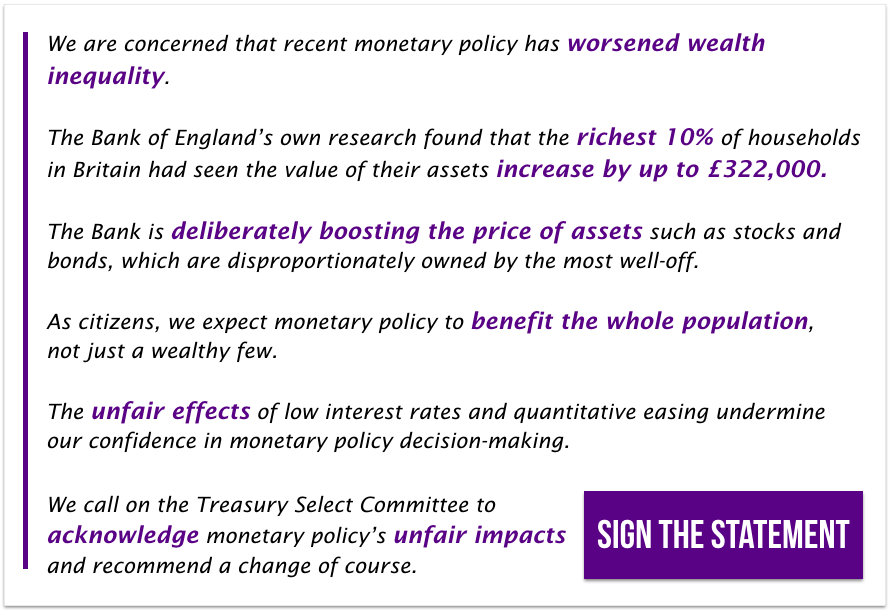Every UK citizen could have received £6,834

From 2009 to 2012, the Bank of England created £375bn of new money. In response to potential economic uncertainties arising from the Brexit vote, the Bank of England announced it would expand its Quantitative Easing (QE) programme by an extra £70bn – bringing QE to a total £445bn.
Most of this money didn’t filter down into the productive sectors of the economy – the sectors that create new flows of goods and services over time.
Instead of directing new investment into infrastructure, businesses and jobs – the bulk of this money remained trapped in the financial sector or flowed into property. This merely inflated asset and property prices, and enriched the owners of these assets – with very little impact on productivity or output.
In fact, even the Bank of England’s own research has shown it exacerbated inequality.
The richest 10% of households in Britain had seen the value of their assets increase by up to £322,000.
The Bank’s research further suggests that, at the very best, the £375bn had a very modest impact on the economy, increasing GDP by 1.5-2%. In other words, every £1 of QE added just 8p to the economy. This translated into increasing incomes by a total of £500-800 per person in the UK.
At Positive Money we believe there is a much better way of using the money created through QE. We would have a QE for People programme!
The mechanics are not quite the same but it could be used to finance much needed investment in green infrastructure, hospitals and schools (to learn more about the differences between QE and QE for People click here).
Or newly created money could simply be distributed evenly amongst the population via a citizen’s dividend.
For illustrative purposes, if the £445bn of new money created via QE was simply distributed evenly amongst the population, every UK citizen would receive a boost to their income of £570 per month for 12 months.
In total, every child, woman, and man would receive £6,834. Of course, because a citizen’s dividend would be much more effective than QE only a small fraction would actually be necessary to stimulate economic activity.
Right now we’ve got a “once-in-a-decade” opportunity to change monetary policy. A small, influential group of MPs has launched an inquiry into the effectiveness and impact of monetary policy since the 2008 financial crash.
Positive Money is going to make a submission to the inquiry. But it’ll be much more powerful if it includes thousands and thousands of our voices behind it.
Make sure your name is on this. Please sign the statement below today.
The inquiry closes on 5th March. Signing the statement should take less than 30 seconds:
